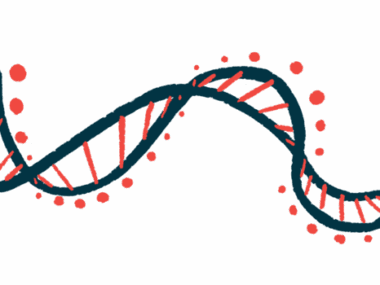Miscarriage Risk Nearly 9 Times Higher in Women With Sjögren′s: Study
Disorder linked to increased risk of pregnancy problems in meta-analysis
Written by |

Sjögren’s syndrome is associated with a significantly increased risk of miscarriage and other adverse outcomes during pregnancy, a recent study reports.
The study, “A meta-analysis of the effect of Sjögren’s syndrome on adverse pregnancy outcomes,” was published in the journal Clinics.
Sjögren’s syndrome mainly affects women over the age of 40, so historically the disease’s effects on pregnancy have received little attention. In recent years, however, as more women choose to pursue pregnancy in their 40s and better awareness has led to many people being diagnosed with Sjögren’s in their early 30s, this issue has increasingly been the focus of study. People with this chronic autoimmune disorder experience dry eyes and a dry mouth but other symptoms can include joint pain, skin rashes, a persistent dry cough, and prolonged fatigue.
Meta-analysis includes 9 studies involving hundreds of pregnant women
A quartet of researchers from the University of Chinese Academy of Sciences conducted a meta-analysis to assess pregnancy outcomes among women with Sjögren’s. A meta-analysis is a type of study where scientists pool data from multiple published studies.
The analysis included nine studies, published from 2005 to 2021, covering hundreds of pregnant women with Sjögren’s, as well as those without the disease, who served as controls. Using statistical models, the researchers compared the risk of various adverse outcomes in pregnant Sjögren’s patients relative to the general population.
Results showed the risk of miscarriage — pregnancy loss before 20 weeks, which is sometimes called a “spontaneous abortion” — was nearly nine times higher among Sjögren’s patients.
Rates of physical abnormalities at birth, such as congenital heart disease, were more than four times higher among Sjögren’s patients. Rates of preterm birth, or babies born with an unusually low body weight, were each about twice as high among patients.
“The current study showed that [Sjögren’s syndrome] increased the risk of birth defects, suggesting that for pregnant women with [Sjögren’s syndrome], obstetric clinics should enhance prenatal consultations and early detection of congenital malformations,” the researchers wrote.
They noted that the autoimmune attack that causes Sjögren’s can damage the placenta and other tissues that are essential in pregnancy, and that pregnancy itself can worsen Sjögren’s in many patients, which may help explain these findings. The team highlighted a need for further research to test whether treatments to control inflammation in Sjögren’s may help improve pregnancy outcomes.
The researchers stressed that, while this study assessed the data that is currently available, there is still relatively little published information on pregnancy outcomes in Sjögren’s. They also noted that many of the studies did not adequately account for other factors that may have influenced the results, so further investigation is needed to verify these findings.






